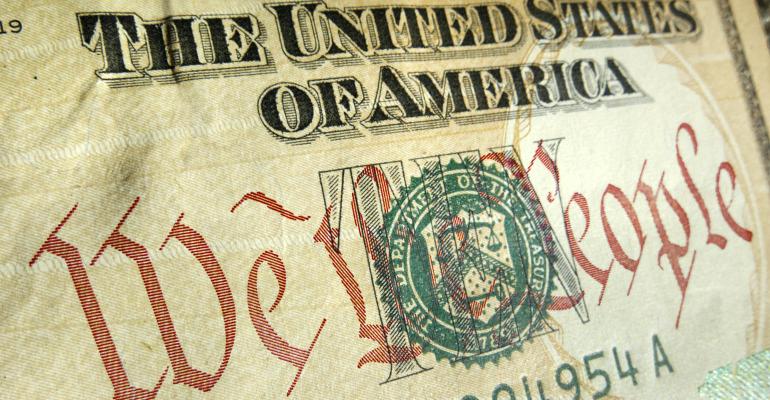(Bloomberg Opinion) -- The US Supreme Court heard arguments on Tuesday over a dispute over a $14,279 tax bill — and the slightly more consequential question of what counts as income under the federal tax code, a definition the Biden administration would like to expand.
The tax bill at the center of the case belongs to Charles and Kathleen Moore, from an investment they made in India almost two decades ago. Although they have never realized any gains, their investment has done well, and changes to tax law passed in 2017 required them to pay taxes on its increased value. The Moores argue that they have not received any income from their investment and therefore should not be subject to any tax.
Whether the Moores’ return is income or an unrealized gain is a difficult legal question. But to an economist the argument is simple: Wealth taxes, which are part of President Joe Biden’s 2024 budget proposal, are terrible policy. Taxes are a fact of life, everyone must pay them, the wealthy more than the less wealthy. But not all taxes are equal, and it’s important how a tax works. Some taxes are harder to implement than others, and some create greater economic distortions. Based on both of these criteria, taxing wealth — including unrealized gains — is the worst way to tax.
Taxing the wealth of centimillionaires, as Biden proposes, may sound harmless; these are after all very rich people (though not billionaires). But implementing this tax would be very difficult. Very rich people often get that way by starting businesses, and they have a lot of their wealth tied up in their companies. Often these companies are privately owned, and therefore very difficult to value objectively.
Even for publicly traded assets, the implementation of the tax would not be straightforward. On what day is the tax liability assessed? What if the value of the asset goes down between then and the day the tax is due? Will the government owe the centimillionaires money in the year their assets lose value? The US currently taxes capital gains, where these questions don’t come up or have a clear answer.
Wealth taxes are also bad for the economy overall. Even owners of successful firms might not have enough cash to pay the tax on the value of their companies in any given year, especially if the tax is as much as 20% on unrealized gains, and may need to dilute their ownership. That means owners would have less control of their businesses.
Subjecting companies to an annual tax on their value would create an incentive to keep companies private, because the value of the firm will be easier to manipulate. In fact, a tax on unrealized gains would probably lead to wealthy people keeping most of their wealth in privately owned assets. This not only reduces transparency, it deprives everyday Americans from the chance to invest in growing companies. Yes, the government could create exceptions — no tax on certain kinds of assets, for example, or in certain sectors — but that would just result in more distortions and less transparency.
True, there is already an estate tax. But it is assessed only once in a lifetime — and it is subject to all sorts of tricks to keep the liability down. There is a reason wealth is not taxed. Other countries tried and found wealth taxes to be more trouble than they’re worth. It is too easy to cheat, and people end up moving their money around — out of the country or in hard-to-value assets such art, instead of in the local economy.
To repeat: Yes, the US needs more tax revenue, and yes, very rich Americans could pay more. But there are better ways to raise the money than through a wealth tax. The government could tax the increase in the value of an estate when it is passed on. There could be more progressive consumption taxes on luxury goods.
Taxing wealth is a bad idea, even for the wealthiest people. No matter what the court decides, politicians should perish the thought of taxing unrealized gains and focus on more sensible ways to raise revenue.
Elsewhere in Bloomberg Opinion:
- A Wealth Tax? It’s Worth Trying: Noah Smith
- Wealth Taxes Have Always Been a Terrible Idea: Allison Schrager
- America’s Top 1% Don’t Make as Much as You Might Think: Tyler Cowen
Want more Bloomberg Opinion? S ubscribe to our daily newsletter .
To contact the author of this story:
Allison Schrager at [email protected]





